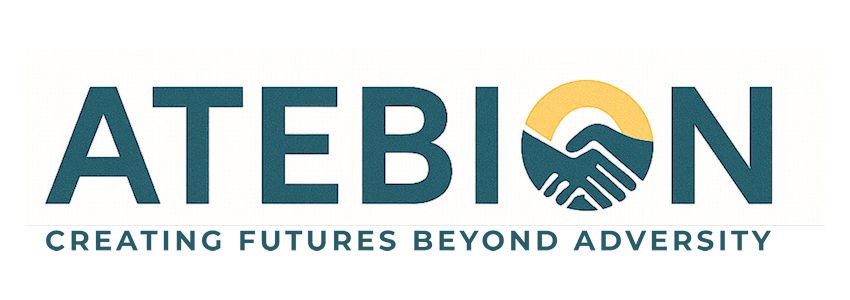During this whole episode, it never struck me that it might be a good idea to get some help. The shame that characterised my alcoholism continued to cripple me. Nevertheless, the possibility that I might be forced to ask for help was not too distant in my mind. I had seen an advert in the British Medical Journal for the Sick Doctors Trust, an organisation offering support to addicted doctors, and one morning when I got a telephone call from a recent employer to say that my addiction was uncovered and that ‘steps were being taken’, I knew where to turn.
I phoned the Sick Doctors Trust helpline and spoke with another doctor in recovery. Although I had attended the local NHS addiction clinic (and was still attending), I never really felt connected to it in an emotional sense. With the Sick Doctors Trust there was an instant emotional connection. The doctor volunteering on the helpline seemed to understand what was wrong with me and much more than that, he knew what I needed to do about it. He knew because he had been in a similar place to me and he knew how I could get out of it. He was in recovery.
He talked about going in to treatment. I said I already was in treatment. He laughed. He was talking about residential treatment. Two days later, I was admitted to residential rehab unit where I stayed for four months.
Although I’d had one or two patients who’d gone to rehab before, I really didn’t know much about it. I thought it might be like the version seen in the movies, but when I arrived nobody took my bags to my room, a room that I had to share with five other men. If there was a pool to lounge beside, I never found it. Food reminded me of school dinners and there was almost no privacy.
In fact, it turned out not to be the rest I thought I deserved, but bloody hard work.
The treatment centre ran a therapeutic community, a set up where there is a sense of community, a hierarchy and an atmosphere in which peers are expected to challenge each other on behaviours not compatible with getting well from addiction. At the core of treatment is group psychotherapy, daily meetings of a dozen of so patients who brought their issues to their peers for feedback, challenge and support.
This is not an environment where an isolated, middle-class doctor might find himself instantly comfortable. It wasn’t comfortable and I spent the first few days writing a list of all the things wrong with the place. Therapists call this externalisation: a device to avoid looking at what’s going on internally.
There were difficulties. I had to give up being a doctor and become a patient: something that was very challenging to me. The idea that I knew better had to be jettisoned. Achieving a degree of humility was painful. My peers in treatment told me to get off my pedestal and join the rest of the human race. In one particularly challenging group, I was confronted by almost every peer and encouraged to look at my attitude. They reckoned I saw myself as different and above the rest of the human race. I was affronted to hear this. Me, stuck up? But the truth is, I needed to hear that and I needed to change.
Today, I still have my list of the faults I detected in the treatment centre all those years ago. I keep it to remind myself of my lack of insight at that time and of my arrogance.
One thing that helped me though was the fact that many of the staff in the treatment centre were in recovery. Sure, they were qualified in various disciplines, but they had lived experience of addiction and how to get better from it. I could see they were people who lived what they believed and they certainly knew more than me about the process of recovery.
I learned more about addiction and recovery than I thought it possible to know… and more besides. The most valuable stuff I learned from my peers and other recovering people. Mutual aid meetings were an important component of the treatment programme. I remember sitting in my first meeting of Narcotics Anonymous (NA), with perhaps twenty other people in recovery from addiction—I’d never seen this number of recovering addicts in my life!—and wondering, ‘Why is this a secret? Why did I not know about this before?’
I found the group therapy and the peer-to-peer support hugely more valuable than the medication I’d previously been taking. Understanding what I do now about recovery, it seems naive to have thought that medication can ever be anything more than an adjunct to a more comprehensive approach.
I started to feel different, but struggled at times to identify emotions. Some of the time I was angry, but other people had to tell me that’s what was going on. At other times, there was sadness. To me it was, ‘I don’t feel right’. Often, my emotional state was clearer to my peers than it was to me. About five or six weeks after being admitted to residential treatment, I remember lying on my bed wondering what the hell it was I was experiencing. It felt amazing, but new. I was frightened it would leave me. After a while, I was able to put a name to this feeling. It was peace.
I discovered I had trouble being honest with myself, preferring to see things in a certain way. Group therapy is very helpful at giving you a new pair of spectacles through which to see the world, and very quickly I gained insight into the repetitive and self-destructive patterns of thinking and acting that had tripped me up so many times in the past.
One of the first lessons I learned was that I was responsible for my own feelings. Although now that sounds very self-evident, for much of my life I had believed that what was happening around me would determine the way I felt; as if I was passive and had no choice in how to respond to circumstances. There was a scared little kid in me who was still dictating the way I would deal with difficult life circumstances and difficult people.
Discovering that how I responded was actually down to me, and not to the circumstances I found myself in, was an eye-opener and very empowering. Treatment helped me to move away from being a perpetual victim to life’s challenges, and develop a bit more self-assurance and confidence.

